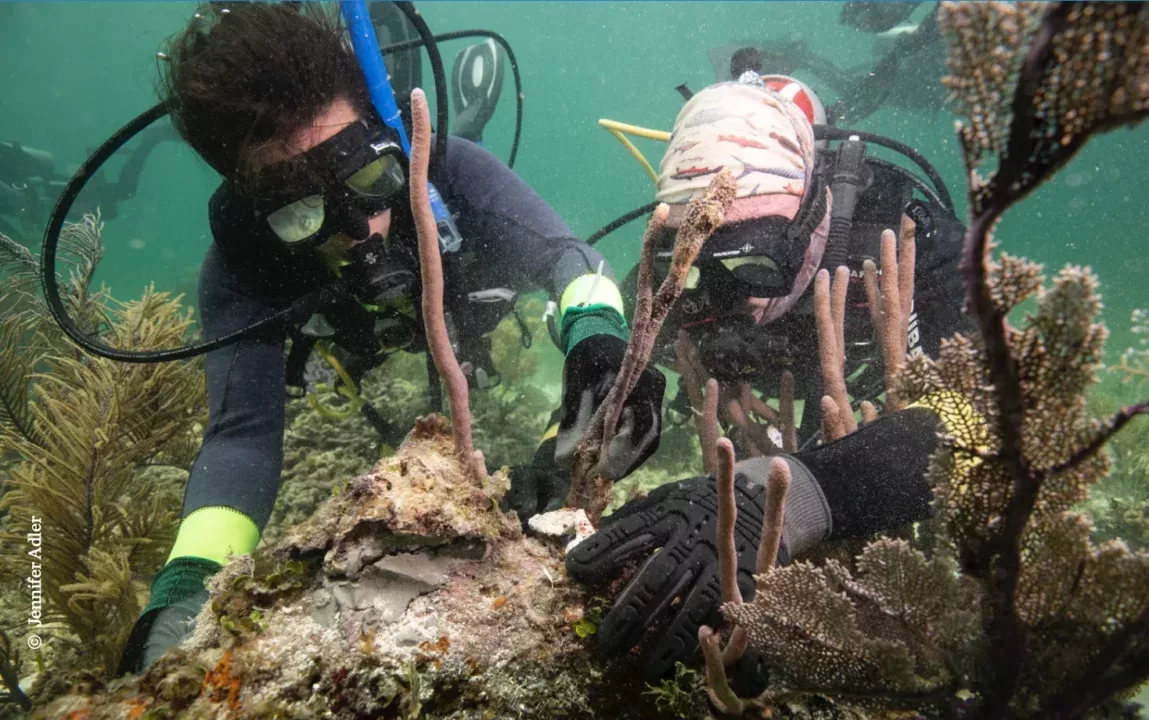Coral reefs play an important role in protecting coastlines from the impact of tropical storms and hurricanes, by reducing exposure to strong waves, flooding and erosion. However, in turn, hurricanes inflict considerable damage to the reef in terms of reduced coral cover and loss of structural complexity. Dislodgement and displacement of massive boulder colonies, broken tips and edges to total fragmentation of branched corals and sometimes structural fractures, are some of the effects of cyclone impact to the reef. Without intervention, affected organisms can be moved continuously by the current, become overturned or buried by sediment, leading to severe tissue loss and abrasion and preventing their reattachment and recovery. Addressing impacts quickly and effectively is critical to reduce the risk of subsequent damage to affected corals and for increasing the likelihood that reefs will continue to provide valuable services to local communities in the future. To respond in this manner, the Early Warning and Rapid Response Protocol presents a step wise approach to guide First Responders and reef managers in terms of what needs to be done before, during and after a tropical cyclone to mitigate the impacts to coral reefs in an orderly and timely manner. The Protocol is a voluntary adoption instrument. We truly hope this instrument provides a useful basis to compliment the valuable effort made by reef managers, tour operators, and local communities in promoting conservation and sustainable use of reefs around the world.
The Protocol can be found attached below in both English and Spanish.
This publication was produced with the support of Swiss Re Foundation, The Nature Conservancy, the International Coral Reef Initiative and the UN Environment Programme.

